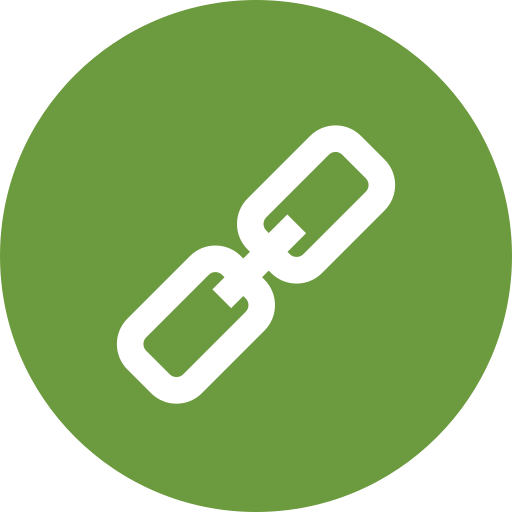| Package | Per pill | Total price | Save | Order |
|---|---|---|---|---|
| 25mg × 30 Pills | $1.64 | $49.10 + Bonus - 4 Pills | - | Add to cart |
| 25mg × 60 Pills | $1.31 | $78.64 + Bonus - 4 Pills | $19.80 | Add to cart |
| 25mg × 90 Pills | $1.23 | $110.46 + Bonus - 7 Pills | $36.90 | Add to cart |
| 25mg × 120 Pills | $1.18 | $141.15 + Bonus - 7 Pills | $55.20 | Add to cart |
| 25mg × 180 Pills | $1.10 | $198.76 + Bonus - 11 Pills | $97.20 | Add to cart |
| 25mg × 270 Pills | $1.08 | $292.43 + Bonus - 11 Pills Free Trackable Delivery | $151.20 | Add to cart |
| 25mg × 360 Pills | $1.06 | $379.87 + Bonus - 11 Pills Free Trackable Delivery | $208.80 | Add to cart |
Hypertension and heart failure are two of the most common cardiovascular diseases affecting millions of people worldwide. Managing these conditions requires a combination of lifestyle changes, dietary modifications, and medication. One such medication that has been widely used to treat hypertension and heart failure is Capoten 25 mg. In this article, we will delve into the details of Capoten 25 mg, its uses, benefits, and how to order Capoten or buy Capoten online.
What is Capoten 25 mg?
Capoten 25 mg is a medication that belongs to a class of drugs known as angiotensin-converting enzyme (ACE) inhibitors. It contains the active ingredient captopril, which works by relaxing blood vessels and reducing blood pressure. Capoten 25 mg is used to treat hypertension, heart failure, and certain types of kidney disease.
Benefits of Capoten 25 mg
The benefits of Capoten 25 mg are numerous. Some of the most significant advantages of using this medication include:
- Lower blood pressure: Capoten 25 mg helps to reduce blood pressure, which can reduce the risk of heart disease, stroke, and kidney disease.
- Improved heart function: Capoten 25 mg can help to improve heart function, reducing the symptoms of heart failure such as shortness of breath and fatigue.
- Reduced risk of kidney disease: Capoten 25 mg can help to reduce the risk of kidney disease, particularly in people with diabetes.
- Convenient dosing: Capoten 25 mg is available in a convenient oral tablet form, making it easy to take as directed.
How to Take Capoten 25 mg
To get the most benefit from Capoten 25 mg, it is essential to take it as directed by your doctor. The usual dosage is 25 mg two or three times a day, with or without food. It is crucial to take Capoten 25 mg at the same time every day to maintain a consistent level of the medication in your blood.
Where to Buy Capoten 25 mg
If you are looking to buy Capoten or order Capoten online, there are several options available. You can purchase Capoten 25 mg on-line from a reputable online pharmacy or buy genuine Capoten line from a licensed pharmacy. Some popular options include:
| Pharmacy | Price | Shipping |
|---|---|---|
| Pharmacy A | $10.99 | Free shipping |
| Pharmacy B | $12.99 | $5 shipping |
| Pharmacy C | $9.99 | $10 shipping |
Table 1: Comparison of Online Pharmacies
When buying Capoten 25 mg online, it is essential to choose a reputable pharmacy that offers cheap 25 mg Capoten free shipping or discount Capoten 25 mg amex. You can also purchase generic Capoten on-line or buy Capoten discount from a licensed pharmacy.
Precautions and Side Effects
While Capoten 25 mg is generally well-tolerated, there are some precautions and side effects to be aware of. Some common side effects include:
- Dizziness or lightheadedness
- Headache
- Fatigue
- Cough
- Diarrhea
It is essential to discuss any concerns or side effects with your doctor. They can help you to order cheapest Capoten and Capoten or buy Capoten no prescription if necessary.
Conclusion
In conclusion, Capoten 25 mg is a effective medication for managing hypertension and heart failure. With its convenient dosing and numerous benefits, it is an excellent option for people looking to reduce their blood pressure and improve their heart function. When buying Capoten 25 mg online, it is crucial to choose a reputable pharmacy that offers generic Capoten 25 mg free shipping or discount Capoten 25 mg with mastercard. By following the guidelines outlined in this article, you can get the most benefit from Capoten 25 mg and improve your overall health.
Frequently Asked Questions
Here are some frequently asked questions about Capoten 25 mg:
- Q: Can I buy Capoten 25 mg without a prescription? A: No, Capoten 25 mg is a prescription medication and should only be taken under the guidance of a doctor.
- Q: How long does it take for Capoten 25 mg to work? A: Capoten 25 mg can start to work within a few hours of taking the medication, but it may take several weeks to see the full benefits.
- Q: Can I take Capoten 25 mg with other medications? A: Yes, but it is essential to discuss any other medications you are taking with your doctor to avoid any potential interactions.
Lists of Benefits and Precautions
Here are some lists of benefits and precautions to consider when taking Capoten 25 mg:
Benefits:
- Lowers blood pressure
- Improves heart function
- Reduces risk of kidney disease
- Convenient dosing
Precautions:
- Dizziness or lightheadedness
- Headache
- Fatigue
- Cough
- Diarrhea
By following the guidelines outlined in this article and discussing any concerns with your doctor, you can get the most benefit from Capoten 25 mg and improve your overall health. Remember to always order Capoten or buy Capoten from a reputable pharmacy and follow the instructions carefully.
Aldosterone is a crucial hormone produced by the suprarenal cortex, also known as the adrenal gland, which plays a vital role in regulating the balance of fluids and electrolytes in the body. One of the primary functions of aldosterone is to stimulate the reabsorption of sodium and water in the kidneys, thereby helping to maintain blood pressure and fluid balance. However, when the secretion of aldosterone is reduced, it can have significant effects on the body's ability to regulate sodium and water levels. In this article, we will explore the consequences of reduced aldosterone secretion on sodium and water balance in the body.
Understanding Aldosterone and its Functions
Aldosterone is a steroid hormone produced by the zona glomerulosa of the suprarenal cortex. It is released in response to increased levels of potassium, decreased levels of sodium, and decreased blood volume. Once released, aldosterone binds to receptors in the kidneys, stimulating the reabsorption of sodium and water from the filtrate back into the bloodstream. This process helps to maintain blood pressure, regulate fluid balance, and maintain proper electrolyte levels.
| Hormone | Function | Effect on Sodium and Water Balance |
|---|---|---|
| Aldosterone | Stimulates reabsorption of sodium and water in the kidneys | Increases blood volume and blood pressure |
| Anti-diuretic hormone (ADH) | Stimulates reabsorption of water in the kidneys | Increases blood volume and decreases urine output |
| Atrial natriuretic peptide (ANP) | Stimulates excretion of sodium and water in the kidneys | Decreases blood volume and blood pressure |
Consequences of Reduced Aldosterone Secretion
When the secretion of aldosterone is reduced, it can have significant effects on the body's ability to regulate sodium and water levels. Some of the consequences of reduced aldosterone secretion include:
- Decreased sodium reabsorption: With reduced aldosterone secretion, the kidneys are less able to reabsorb sodium from the filtrate, leading to increased excretion of sodium in the urine.
- Decreased water reabsorption: Reduced aldosterone secretion also leads to decreased reabsorption of water in the kidneys, resulting in increased urine output and decreased blood volume.
- Decreased blood pressure: The combination of decreased sodium and water reabsorption can lead to decreased blood volume and blood pressure.
- Electrolyte imbalance: Reduced aldosterone secretion can also lead to an imbalance of electrolytes, including potassium, sodium, and chloride.
Causes of Reduced Aldosterone Secretion
There are several causes of reduced aldosterone secretion, including:
- Adrenal insufficiency: This is a condition where the adrenal glands do not produce enough hormones, including aldosterone.
- Hyporeninemic hypoaldosteronism: This is a condition where the kidneys do not produce enough renin, leading to reduced aldosterone secretion.
- Medications: Certain medications, such as spironolactone, can block the effects of aldosterone and lead to reduced sodium and water reabsorption.
- Genetic disorders: Certain genetic disorders, such as congenital adrenal hyperplasia, can affect the production of aldosterone.
Effects of Reduced Aldosterone Secretion on the Body
The effects of reduced aldosterone secretion on the body can be significant and far-reaching. Some of the effects include:
- Fatigue and weakness: Decreased blood volume and blood pressure can lead to fatigue and weakness.
- Dizziness and lightheadedness: Decreased blood pressure can cause dizziness and lightheadedness.
- Increased urine output: Decreased water reabsorption can lead to increased urine output and dehydration.
- Electrolyte imbalance: Reduced aldosterone secretion can lead to an imbalance of electrolytes, including potassium, sodium, and chloride.
Treatment and Management of Reduced Aldosterone Secretion
Treatment and management of reduced aldosterone secretion depend on the underlying cause of the condition. Some of the treatment options include:
- Hormone replacement therapy: This involves replacing the missing hormone with medication.
- Medications: Certain medications, such as fludrocortisone, can help to replace the effects of aldosterone.
- Lifestyle changes: Lifestyle changes, such as increasing sodium intake and monitoring urine output, can help to manage the condition.
- Dietary changes: Dietary changes, such as increasing potassium intake, can help to manage electrolyte imbalance.
In conclusion, reduced aldosterone secretion can have significant effects on the body's ability to regulate sodium and water levels. Understanding the causes and consequences of reduced aldosterone secretion is crucial for effective treatment and management of the condition. By recognizing the signs and symptoms of reduced aldosterone secretion and seeking medical attention, individuals can help to prevent complications and improve their overall health and well-being.
Key Takeaways
- Reduced aldosterone secretion can lead to decreased sodium and water reabsorption, decreased blood volume and blood pressure, and electrolyte imbalance.
- Causes of reduced aldosterone secretion include adrenal insufficiency, hyporeninemic hypoaldosteronism, medications, and genetic disorders.
- Effects of reduced aldosterone secretion on the body include fatigue and weakness, dizziness and lightheadedness, increased urine output, and electrolyte imbalance.
- Treatment and management of reduced aldosterone secretion depend on the underlying cause of the condition and may include hormone replacement therapy, medications, lifestyle changes, and dietary changes.
Recommendations
- Individuals with reduced aldosterone secretion should monitor their urine output and electrolyte levels closely.
- Individuals with reduced aldosterone secretion should avoid medications that can worsen the condition, such as diuretics.
- Individuals with reduced aldosterone secretion should increase their sodium intake to help manage the condition.
- Individuals with reduced aldosterone secretion should seek medical attention if they experience symptoms such as fatigue, weakness, dizziness, or lightheadedness.
























